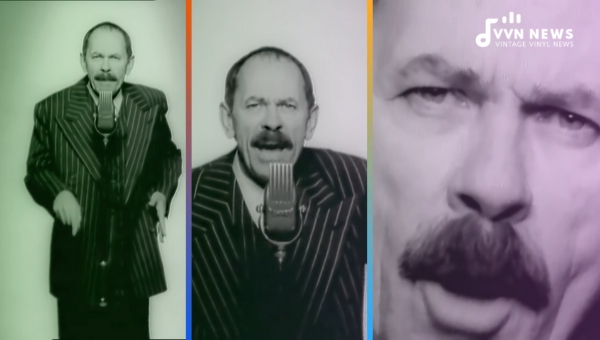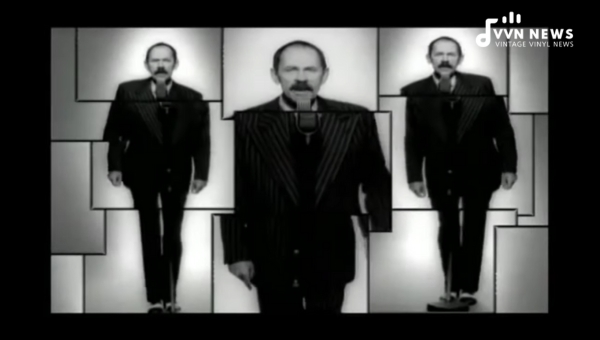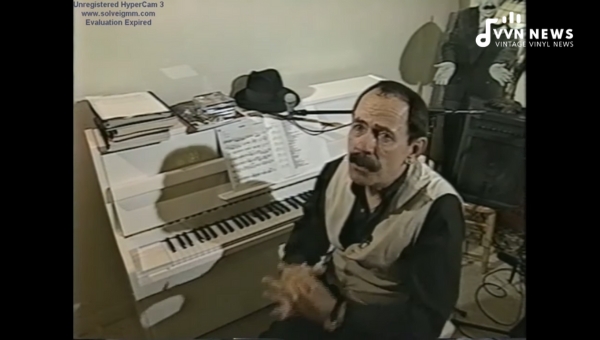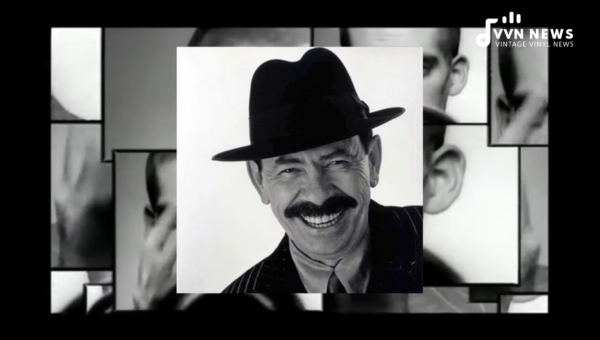The first time I heard Scatman John belting out his unique fusion of scat singing and dance beats, I was blown away.
Scatman John stuttered his way to stardom! His captivating performances and signature style were not only wildly entertaining, but also inspiring.
As a person who faced the life-long challenge of stuttering, he didn’t let it hold him back. Instead, he turned it into his superpower and a hallmark of his exciting music career.
Scatman John transformed what many would consider a handicap into an extraordinary talent for rhythm and articulation in music.
He bridged the gap between verbal communication barriers and creating boundless sonic expressions through scat singing.
His journey from struggling with speech to chart-topping success was remarkable, embodying the resilience and determination of the American dream.
Essentially, he added a new dimension of possibilities for those who stutter.
Unraveling Scatman John’s Early Years
Born as John Paul Larkin in El Monte, California, in 1942, this voice that would come to stand out from the crowd began life with its challenges.
Childhood Experiences
Scatman John’s childhood was anything but ordinary. At the tender age of 12, he discovered he had a stutter.
This quirk could have set him up for a life of ridicule and discrimination but instead became an attribute defining his future glory.
This wasn’t always the case; young John found his childhood marred by frustration and embarrassment due to his stuttering. He fell victim to countless teases and jibes, leaving him alienated.
Discovering Music and Dealing With Stuttering
Adolescence poses many struggles for any individual of this age group; it was no different for John.
Something magical changed his life completely – he discovered Jazz! John’s native city, El Monte in California, was a vibrant hub for live music in the mid-50s.
Through the mellow tones of jazz music, young John found an escape from his daily trials.
Besides enjoying listening to music, he felt a strong desire to contribute to the world of beats and melodies.
Around this time, he picked up piano skills, which brought out his natural-born gift in music – something that drew attention away from his stutter.
Influenced by artists like Ella Fitzgerald and Louis Armstrong, pioneers in Scat singing – an improvised jazz singing style using wordless vocables or nonsense syllables (For Example, “doo-be-doo”) -John also gave it a shot.
Miraculously, while scat singing, the stutter seemed relatively non-existent! Suddenly, he had found an escape and a potential haven within music.
If anything, this early chapter in his life proved that stumbling blocks can be stepping stones to a successful future. The magic of music and the art of scat singing set him on course to becoming an international star – Scatman John, a title he truly deserved.
Hope you enjoyed reading this. Stay tuned for more insights into Scatman John’s journey from a stuttering teenager to a renowned Scat singer in the upcoming sections.
John’s Journey into the Spotlight

As Scatman John set out to make his place in the world of music, it was anything but smooth sailing. The path was littered with both failures and victories.
These experiences only transformed him into a stronger individual and an unforgettable icon.
Scatman’s Initial Attempts at Fame
Despite his stutter, John wasn’t afraid to step out into the music sphere; he remained relentless in pursuing fame despite the odds stacked against him.
In the early days of his career, he performed in numerous bars and clubs in California.
His talent in Scat singing and piano playing was undeniable; his stutter held him back significantly regarding talking or public interaction.
As talented as he was, John was rejected by many record labels solely due to his speech impediment.
This ongoing rejection bruised his young aspirations but didn’t break him completely. He decided that if record labels wouldn’t open their doors for him, he would somehow find another way in. Armed with a lion-hearted spirit, this bold decision would alter the trajectory of his life forever.
It’s vital that every great individual you’ve known has faced rejection and hardship at some point in their life, too.
This narrative is true for everybody who rose above their circumstance and manifested success – even for Scatman John.
Personal Struggle and Life-Changing Decision
As John waded through murky waters trying to catch a break within Hollywood’s glitzy entertainment industry, he submerged himself deeper into an abyss of personal struggles, including alcoholism.
He saw a ray of hope amid the chaos with solid support from loved ones and in-depth therapy sessions dealing with addiction recovery and self-acceptance for speech impediment sessions (managed via the American Speech-Language-Hearing Association (ASHA)).
A significant turning point in John’s life occurred when he integrated his speech disorder into his music.
He reckoned that rather than viewing stuttering as a disadvantage, he could turn it into a unique musical tool – rhythmic improvisation in keeping with scat singing.
His refusal to suffer in silence and hide behind the curtain finally bore fruit when he decided to meet the gaze of adversity and creatively address it through music.
This decision was his key to unlocking stardom. It is not an exaggeration to say that this bold step propelled him out from the dark shadows of obscurity and into the lustrous limelight where he rightfully belonged.
What came next is nothing short of phenomenal! Stay tuned for more on Scatman John’s meteoric rise to international stardom.
Also Read: 30 Crazy Science-Supported Facts About Music [2025 Latest]
Rise to International Stardom: The Birth of ‘Scatman’ John
Throughout the 70s and 80s, John continued navigating his path in the music scene.
He pursued a jazz career in Los Angeles but despite his exceptional skills and throaty scat singing that readily camouflaged his stutter, immense fame eluded him.
The big turning point arrived in 1990 when he moved to Berlin with his wife, Judy McHugh Larkin.
In an alien land with a new audience landscape, John bravely decided to embrace what he had shied away from for years – his stutter.
Release and Success of ‘Scatman’
A new chapter began in 1995 – now under a dapper hat and mustache with a flashy wardrobe and re-christened as ‘Scatman’ John.
His debut single ‘Scatman (Ski-Ba-Bop-Ba-Dop-Bop)’ was a dynamic blend of scat singing overlaying rhythmic techno beats demonstrating his belief: “If the Scatman can do it, so can you.” From the first “Ski-bi dibby dib yo da dub dub,” listeners were hooked.
The song swiftly topped the charts in numerous countries, including Germany, Belgium, France, Ireland, Switzerland, and Norway.
Even Japan became enthralled by Scatman’s irresistible energy, evidenced by the track selling more than a million copies.
Notably, it reached Number 3 in the UK’s top charts; ironically, this pulsating music born out of overcoming speech adversity didn’t seem to resonate as much back home in the USA, where it only managed a peak position at number sixty.
Reception Worldwide
The once-inflicted teen boy’s struggle, now cloaked within his music, started resonating worldwide. Scatman (Ski-Ba-Bop-Ba-Dop-Bop) was an instant hit, but more so, it became a beacon of hope.
Fans didn’t just bob their heads to his unique rhythmic patterns but also were inspired by the underlying message- overcoming personal hardship, in his case, stuttering.
A single was not the only contribution during this time, as his debut album, ‘Scatman’s World’, was phenomenally received.
The album, a genre-bending blend of jazz, pop, and dance music with positive lyrics about peace and equality, reflected his musical prowess and inspirational life journey.
This triumphantly marked Scatman John’s well-deserved entrance into international stardom.
Deeper Look into Scatman’s Pioneering Career

Scatman John’s career is a story of resilience, innovation, and triumph over adversity.
His innovative fusion of syncopated jazz elements with modern dance beats created a groundbreaking new genre that captivated audiences worldwide.
Moreover, his lyrical themes often reflected his experiences with stuttering, adding a unique layer of authenticity and vulnerability to his music.
The transition from Jazz to Scat
After struggling for years as a relatively anonymous jazz artist in America, John Larkin moved to Berlin in 1990.
He decided it was finally time to confront his stutter head-on by incorporating scat singing into his craft.
This decision led to the release of his groundbreaking single ‘Scatman (ski-ba-bop-ba-dop-bop)‘ under BMG Records in 1994.
The song was an instant success and quickly charted across Europe and Japan.
It effortlessly married elements of jazz with the urgency and dynamism of contemporary dance music, creating a unique sound that no one had heard before.
A New Sound – Impact on the Music Industry
His approach spawned a whole new sub-genre: scat rap. His hybrid style propelled him into international arenas where the audience roared with delighted surprise at this innovative genre born out of one man’s lifelong challenges.
Ask anyone from the ‘90s about Scatman John; they’d happily hum along, “Ski-bi dibby dib yo da dub dub.”
Global Recognition
John’s impactful career culminated in numerous awards nationally and internationally.
The most notable were the Echo Award for Best International Male Artist (1995), and Best Selling American Act at the World Music Awards (1996), among others.
Scatman John inspired audiences not only through his high-powered performances but also through his courageous personal narrative.
His transformative journey from an insecure stutterer to an iconic worldwide superstar resonates with people everywhere, reinventing what it means to be different and proving that adversity can shape your greatest triumphs.
Also Read: 10 True Music Myths 2025 [Find Out What Is Real & What’s Not]
The Final Steps: Last Years of the Legendary ‘Scatman’
No story of victory is complete without its final chapters. For Scatman John, these were defined by resilience and an unyielding commitment to his craft.
Continuing Work Until His Demise
Despite being diagnosed with lung cancer in 1999, Scatman John continued making music, a testament to his indomitable spirit.
His final album, “Take Your Time,” was released posthumously, emanating powerful vibes of determination and courage that resonated with his listeners worldwide.
It was evident that home or hospitalization, nothing could keep this soul away from the rhythms that were his life’s pulse.
He passed away in December of the same year, leaving a void in the music industry.
Truly an icon, he was both an entertainer and an advocate for individuals with stuttering throughout his career.
Legacy Left Behind
The legacy that Scatman John left behind is multifold:
- Breaking Barriers in Music: With his unparalleled appreciation for scat singing combined with dance beats, Scatman redefined how music could sound – experimental and soul-touching at once.
- Highlighting Stuttering: He took something considered “negative,” like stuttering, and made it a unique part of a successful music career. This was possibly his most impactful contribution to the world of music and all those facing speech impediments.
- Advocacy for Stutterers: He used his fame as an international artist to advocate positive change for millions who stuttered worldwide.
Scatman John’s music, words, and actions are a testament to an extraordinary life.
The man who stuttered off stage but didn’t miss a beat on the podium is remembered even to this day – proof of his lasting impact on countless hearts and lives.
His journey is an inspiring reminder that adversity can indeed birth legends, and that one’s circumstances never define the proper limits of their potential.
Singing through his stammer, Scatman John was truly unforgettable! His legacy continues reverberating through the corridors of music history, reminding us to embrace our uniqueness and march to the beat of our drums.
Impact on the Stuttering Community: Galvanizing Change with Music

Scatman John’s impact stretched far beyond the upbeat tempo of his music. He utilized his platform to engender change, particularly within the stuttering community, encapsulating a story of resilience that has reverberated around the world.
Scatman as an Advocate for Stutterers
John significantly shifted his perspective towards his stutter when he realized he could use his musical talent and fame to inspire others.
He openly talked about his stutter, bringing it out of the shadows and into the spotlight. “My greatest problem is that I overthink, too deep,” he once said.
“The same mind that gets me in trouble also got me two number-one hit records in Europe.” This statement became a beacon of hope for others wrestling with speech impediments.
Scatman became an advocate for stuttering communities worldwide, using his music to deliver the message that a stutter shouldn’t be an obstacle to achieving one’s dreams.
He encouraged those with stutters to accept themselves and see their unique voice as a strength rather than a weakness.
He once shared, “Anyone who stutters could be saying two things at once; you just have to learn how to listen.”
His positive outlook made him a role model for millions worldwide who struggled with stuttering and personal communication barriers.
Long-term Influence on Music and Society
Scatman John’s influence extended far beyond his music. He redefined how society perceived stuttering.
The mainstream success demonstrated by someone who faced such lifelong challenges created waves of change within societal attitudes and treatment towards people with stutters.
Moreover, Scotsman John left behind a legacy of inspirational music filled with positivity and messages on self-acceptance.
In 1996, he received the Annie Glenn Award from the National Association for Stuttering for using his voice in music to bring heightened awareness and positivity around stuttering.
To this day, Scatman John’s influence resonates within the music industry and public discourse on disabilities.
His message of hope remains deeply etched in the heart of the stuttering community, proving that you can turn your vulnerabilities into unique abilities with a dash of passionate perseverance.
Scatman John’s life and career prove that being different shouldn’t hinder you from shining brightly. Instead, it’s those unique traits that make you who you are.
Also Read: 15 Compression Myths & Mistruths [Setting The Record Straight]
FAQs About Scatman John
Who was Scatman John?
Scatman John, born John Paul Larkin, was an American musician noted for his scat singing style and dance floor hits. He turned his stuttering obstacle into a remarkable talent, leading to his global fame.
What music genre is Scatman John known for?
Scatman John is celebrated for fusing Jazz and dance beats in a unique genre that captivated international audiences. His style was deeply rooted in scat singing, an improvisational method of producing melodies and rhythm using wordless syllables.
Did Scatman John stutter?
Scatman John had a severe stutter, which became a defining feature of his music career. Instead of seeing it as a setback, he used it to excel in scat singing, where his distinct cadence enhanced the rhythmic texture of his songs.
How did Scatman John become famous?
Scatman John became an international sensation with the release of “Scatman (Ski-Ba-Bop-Ba-Dop-Bop).” The song topped charts across the globe due to its distinct fusion of scats and synthesizer-driven dance music.
What legacy did Scatman leave behind?
Beyond unleashing infectious tunes that evoke nostalgia among listeners today, Scatman’s legacy lies in transforming personal adversity into sonic expression and inspiring others who stutter to conquer their linguistic challenges through artistry and resilience.
Conclusion
Scatman John’s story proves that a supposed handicap can morph into extraordinary prowess.
His stutter did not deter him but shaped his unique musical style and launched his path to international fame.
More than entertaining, he was inspired by demonstrating resilience and determination.
His legacy inspires millions globally who stutter, proving that hurdles are opportunities in disguise. Indeed, his life story validates the saying – “Where words fail, music speaks.”








